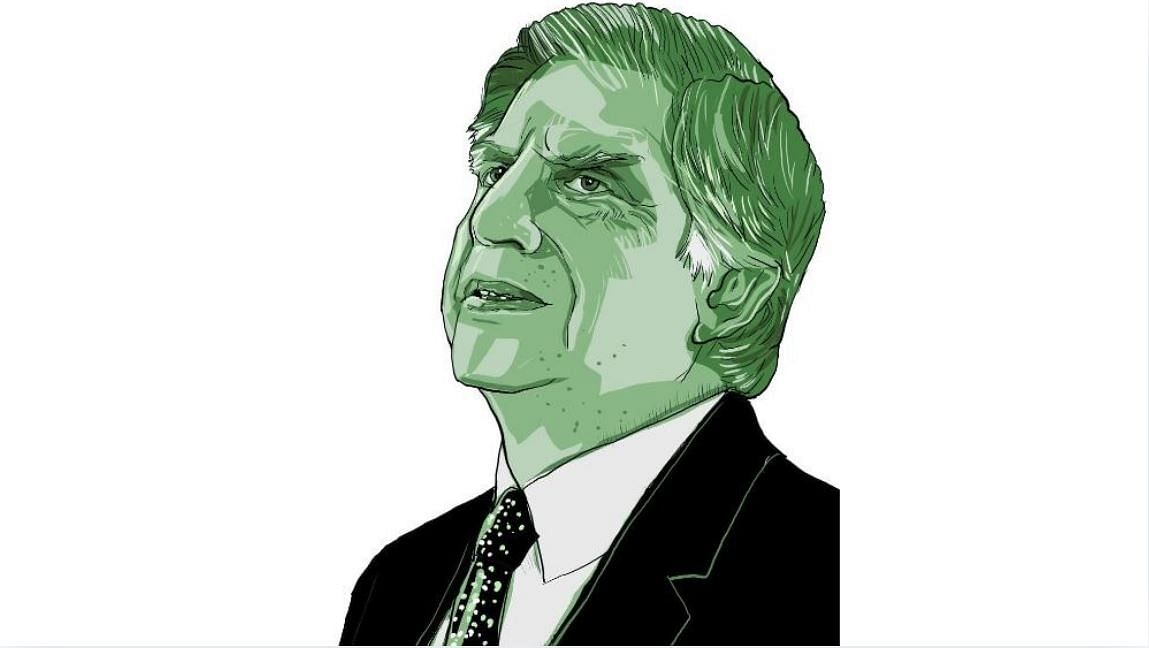
Ratan Tata
DH Illustration/Deepak Harichandan
Ratan Tata was not an unsentimental, profit-driven, corporate czar. Indeed, as the long-serving chairman and then the Chairman Emeritus of India’s largest conglomerate Tata Sons, he enabled some decisions guided more by the heart than by the head. There were commitments which were purely emotional.
Take the example of Tata Nano, which was supposed to make India a country of car owners, but ultimately sold only around 300,000 units. Or Air India. Pure business sense would tell you not to buy a debt-laden company which operates in a very challenging sector. But for him, it was about bringing a family jewel founded by uncle JRD Tata, home.
But it is these qualities that made Tata, who died in Mumbai late on Wednesday night at the age of 86, one of India’s most admired and respected figures.
“It is with a profound sense of loss that we bid farewell to Mr Ratan Naval Tata, a truly uncommon leader whose immeasurable contributions have shaped not only the Tata Group but also the very fabric of our nation,” said Tata Sons Chairman N Chandrasekaran, in a statement shortly after Tata’s death.
Tata was under intensive care in a Mumbai hospital.
On social media platform X, Prime Minister Narendra Modi described Tata as “a visionary business leader, a compassionate soul and an extraordinary human being”.
Born in December 1937, Tata completed his education at Cornell University and joined one of the Tata subsidiaries in the 1970s. He worked in several Tata companies, including Tata Motors as well as Tata Steel. His time as Chairman of Tata Sons began in 1991, thus coinciding with the start of liberalisation.
Under his leadership, Tata went from an Indian family-owned corporate business to a global conglomerate with a presence in more than 100 countries. He spearheaded expansion through several notable acquisitions, starting with Tata Tea buying Tetley in 2000.
Over the following years, Tata Motors bought Jaguar-Land Rover and Daewoo Commercial Vehicles, Tata Steel acquired Corus, NatSteel among others, and Tata Chemicals bought Brunner Mond, among many other acquisitions. The acquisition of Corus, for $13 billion in 2007, was at the time the biggest takeover of a foreign firm by an Indian company.
Awarded the Padma Bhushan in 2000 and Padma Vibushan in 2008, Tata was also regarded as one of the largest philanthropists in the world.
Apart from the Nano, his other memorable automotive project was the Indica, the first car completely designed and built in India.
A licensed pilot who would occasionally fly the company plane, Tata never married and was known to live a relatively modest life.
After stepping back from corporate duties, Tata also invested in several Indian startups, including Paytm, Ola Electric, and Urban Company.
Ratan Tata was not an unsentimental, profit-driven, corporate czar. And that was a good thing for India.